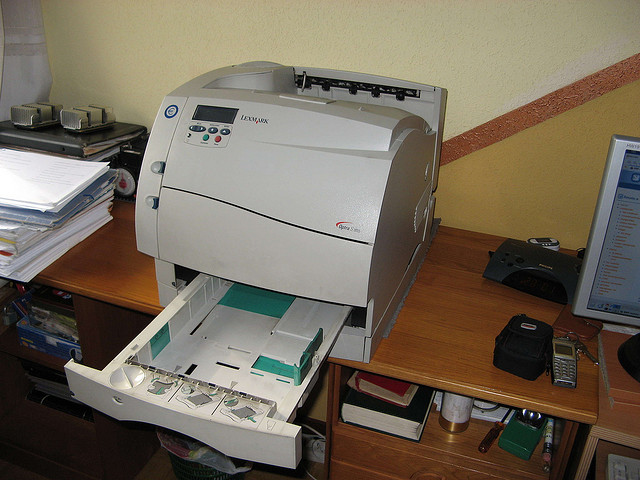
A case that went before the Supreme Court yesterday has a very long history. Lexmark sued Static Control Components (SCC) in 2002, arguing that SCC shouldn't be allowed to reverse-engineer its printers to help others create replacement toner cartridges, because of copyright law. In 2004, an appeals court ruled in favor of SCC, and that ruling has become a cornerstone of DMCA-era copyright law.
SCC didn't actually make toner cartridges for the "aftermarket," but it helped others do so. Lexmark installed microchips in its toner cartridges and in its printers that prevented any cartridges from other companies from being used; but SCC figured out how to duplicate those microchips and sold them, along with other items needed to compete in the printer-cartridge aftermarket, to various companies.
The dispute got very heated, with Lexmark ultimately going to SCC's customers to say that the company was infringing on Lexmark's intellectual property. According to SCC, Lexmark told customers that SCC was breaking the law. Lexmark "misled... customers of SCC’s products that license agreements prohibit remanufacturing Lexmark toner cartridges when no license agreements actually exist."
That caused SCC to accuse Lexmark of engaging in "false advertising," a dispute that is still alive in courts even though Lexmark's copyright claim against SCC is long dead. The question the high court is currently grappling with is, who should have standing to bring such a case?
As Santa Clara University Law Professor Eric Goldman pointed out in a blog post on the case, appeals courts "have adopted differing tests for determining" standing under the Lanham Act—the main federal false-advertising law. His post reviews five different options as to what test the high court might embrace, each of which has varying degrees of strictness. For instance, does someone suing over false advertising need to be a "direct competitor," or is it enough that the two companies are in the same "zone of interest?"
One way or the other, it's now in the hands of the high court. Lexmark is advocating for the strictest test about who can bring such a suit—a standard called "Comte Bros" from a case at the US Court of Appeals for the 3rd Circuit. That opinion, coincidentally, was authored by Justice Samuel Alito, who was then a judge on the Third Circuit.
While it's hard to tell what will ultimately happen, Goldman wrote that none of the other justices appeared inclined to adopt the strict test that Alito supported. "I didn't get the sense any of the other judges were following him," he wrote.
reader comments
118